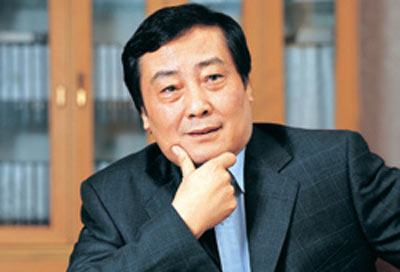Increasingly well-off Chinese consumers are looking for healthier drinks and China's richest man, Zong Qinghou, wants to provide them.

The richest man in China, beverage baron Zong Qinghou of Wahaha Group is ranked No. 103 on the global list of billionaires compared with No. 376 previously. Zong is worth $7 billion, compared with $1.9 billion last year.
Only a few years ago, an ugly legal dispute between China’s beverage giant Wahaha and joint venture partner Danone over the right to use the Wahaha brand had brought a cloud over both in China. With the dispute resolved last year, Wahaha is well-positioned to turn its attention to new products. Forbes talked to Chairman Zong in his office in China’s eastern city of Hangzhou about this year’s business outlook, new products and succession. Excerpts follow.
Forbes: What’s the growth outlook for China’s beverage industry this year?
Zong Qinghou: The market will continue to grow more than 20%. The market has become concentrated--about five companies--Wahaha, Coke, Pepsi, Tingyi and President have more than half, and if you add in about 10 more firms, the total is 80%. The bigger companies will have a larger and larger market shares. Also, more and more companies will be looking to differentiate their product. China already has one of the largest number of drink varieties in the world, and this will continue.
Forbes: What would you say is behind Wahaha’s success?
Zong Qinghou: We have a segmented product strategy. Not long ago, most beverage companies in China had similar products and competed on price, which lowered profitability. A few years ago, we started looking more for products that others didn’t have a segmented product strategy. Not long ago, most beverage companies in China had similar products and competed on price, which lowered profitability. A few years ago, we started looking more for products that others didn’t have. This is helping our sales and our profits. Also, once you have scale, as we do, you get better efficiency from advertising. If you have 20 billion RMB in sales and spend 1 billion RMB in advertising, that’s 5% of your revenue. But if you have 40 billion in sales, that percentage of your cost falls to 2.5%. In that situation, even if you’re pricing is the same as your competition, you’re going to be more profitable. We have another advantage: we produce a lot of our own packaging, which helps our profit margins.
We’re also successful because we’re in China. The U.S. and European markets have become mature, profit margins are lower and equipment isn’t so new. Because profits are relatively low, it limits the willingness of companies to invest in newer equipment. We’ve invested more, and that’s good for growth.
|


